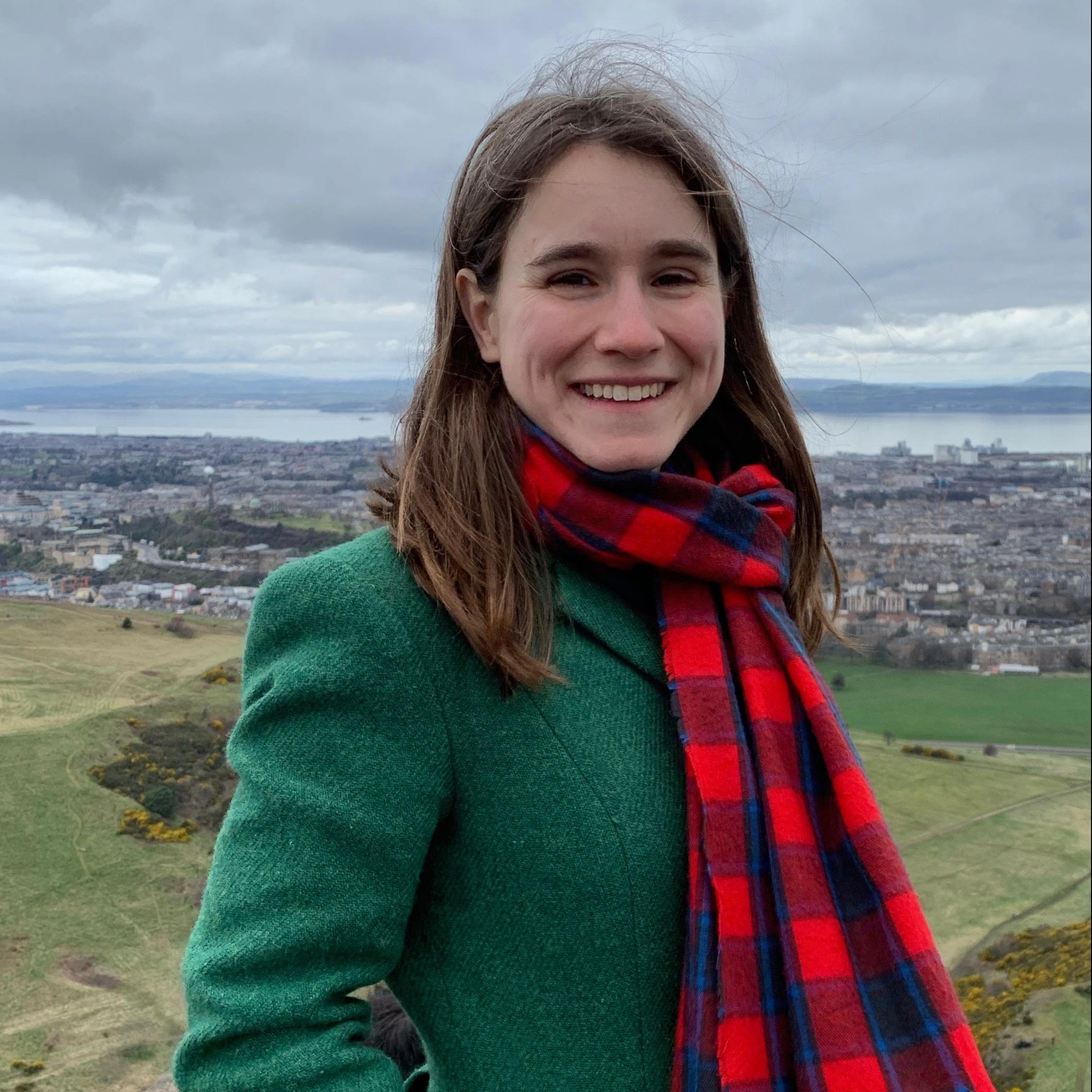Staff profile

| Affiliation | Telephone |
|---|---|
| Lecturer in European History, 1300-1500 in the Department of History | |
| Member of the Institute of Medieval and Early Modern Studies |
Biography
PhD: University of St Andrews, 2014
2016-2017: Mellon Postdoctoral Research Fellow, Pontifical Institute of Mediaeval Studies, Toronto, Canada
2018-2022: Leverhulme Early Career Fellow, Department of History, University of Nottingham
I am a historian of late medieval religious culture, specialising in heresy and inquisition with a particular focus on the condemnation of heretical texts. My book, A Diabolical Voice: Heresy and the Reception of the Latin Mirror of Simple Souls in the Late Middle Ages (Cornell University Press, 2023), presents a new reception history for the condemned mystical work The Mirror of Simple Souls. The Mirror was condemned as heretical in Paris in 1310 and its author, Marguerite Porete, was burned at the stake. My book demonstrates a continued trend of opposition directed at the Mirror long after this condemnation, centered specifically around its Latin translation, and which occurred simultaneously with an increasingly positive reception in other circles. Theologians, canon lawyers, inquisitors, and preachers continued to attack the Mirror as dangerously heretical, and entirely in ignorance of its initial condemnation.
My current research focuses on the condemnation of heretical texts in the thirteenth, fourteenth, and fifteenth centuries more broadly. I examine issues of procedure, knowledge, and memory of a condemnation and the impact these had on the circulation and suppression of condemned books. I am also interested in medieval perceptions of heretical books, and examine how the perception of books in relation to heresy developed and shifted over the course of the fourteenth and fifteenth centuries, and what this means for how we conceive of late medieval heresy as a whole.
Publications
Authored book
- A Diabolical Voice: Heresy and the Reception of the Latin Mirror of Simple Souls in Late Medieval EuropeTrombley, J. L. (2023). A Diabolical Voice: Heresy and the Reception of the Latin Mirror of Simple Souls in Late Medieval Europe. Cornell University Press.
Chapter in book
- New Frontiers in the Late Medieval Reception of a Heretical Text: The Implications of Two New Latin Copies of Marguerite Porete's Mirror of Simple SoulsTrombley, J. (2018). New Frontiers in the Late Medieval Reception of a Heretical Text: The Implications of Two New Latin Copies of Marguerite Porete’s Mirror of Simple Souls. In Late Medieval Heresy: New Perspectives. Studies in Honor of Robert E. Lerner (pp. 157-177). Boydell and Brewer.
- The Latin Manuscripts of The Mirror of Simple SoulsTrombley, J. (2017). The Latin Manuscripts of The Mirror of Simple Souls. In A Companion to Marguerite Porete and The Mirror of Simple Souls (pp. 186-217). https://doi.org/10.1163/9789004338562_009
Journal Article
- Olivi, the Beguins, and the Blurred Boundaries of Academic and Popular HeresyTrombley, J. (2024). Olivi, the Beguins, and the Blurred Boundaries of Academic and Popular Heresy. I Quaderni Del m.æ.S., 22(1s), 191-206.
- Self-Defence and Its Limits in Marguerite Porete’s Mirror of Simple SoulsTrombley, J. (2019). Self-Defence and Its Limits in Marguerite Porete’s Mirror of Simple Souls. Nottingham Medieval Studies, 63, 129-151. https://doi.org/10.1484/j.nms.5.118197
- The Text as Heretic: Mixed Genres and Polemical Techniques in a Refutation of the Mirror of Simple SoulsTrombley, J. L. (2018). The Text as Heretic: Mixed Genres and Polemical Techniques in a Refutation of the Mirror of Simple Souls. Medieval Worlds, Medieval Worlds(Volume 7. 2018), 137-152. https://doi.org/10.1553/medievalworlds_no7_2018s137
- New evidence on the origins of the Latin Mirror of Simple Souls from a forgotten Paduan manuscriptTrombley, J. L. (2017). New evidence on the origins of the Latin Mirror of Simple Souls from a forgotten Paduan manuscript. Journal of Medieval History, 43(2). https://doi.org/10.1080/03044181.2017.1284690
- The Master and the Mirror: The Influence of Marguerite Porete on Meister EckhartTrombley, J. L. (2010). The Master and the Mirror: The Influence of Marguerite Porete on Meister Eckhart. Magistra, 16.1, 60-102.

